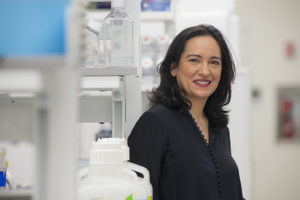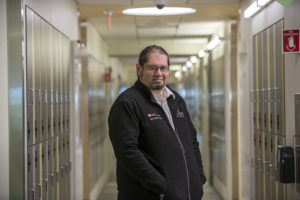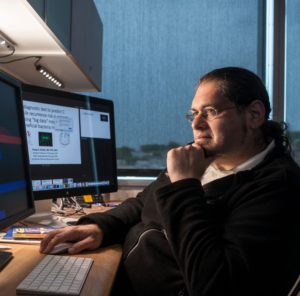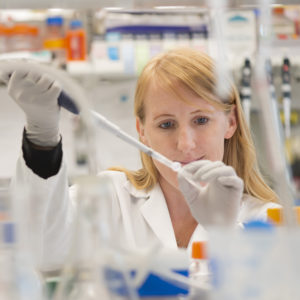Brigham President’s Scholar Awards
The Brigham President’s Scholar Awards are philanthropically-supported awards that provide unrestricted funding to early-career investigators
2022 Request for Nominations Due: February 25, 2022
Learn more here

The Brigham President’s Scholar Awards are philanthropically-supported awards that provide unrestricted funding to early-career investigators
2022 Request for Nominations Due: February 25, 2022
Learn more here
The Brigham President’s Scholar Awards support the careers of assistant or associate professors at the hospital who have made outstanding contributions to their chosen field of research and who have exceptional potential.
Through an annual competitive process, up to three investigators will be selected to receive President’s Scholar Awards in the amount of $100,000 per year for three years. Awards are determined based on a holistic review of the candidate’s demonstrated scholarly and/or entrepreneurial accomplishments.
To learn more about the President’s Scholar Awards or to find out how you can support these visionary thinkers, please contact Kristin Garrity (kgarrity1@bwh.harvard.edu) in our Development office.

Ana C. Anderson, PhD
Associate Professor
Department of Neurology

Georg Gerber, MD, PhD, MPH
Assistant Professor
Department of Pathology

Jessica Lasky-Su, ScD
Associate Professor
Department of Medicine

Tracy Young-Pearse, PhD
Associate Professor
Department of Neurology
Research Summary – Ana Anderson, PhD

The immune system is capable of fighting cancer. Unfortunately, the immune response within tumor tissue is strongly suppressed. My research focuses on understanding the ways by which the immune system is suppressed in tumor tissue, with a specific focus on CD8+ T cells that are key mediators of anti-tumor immunity. The overarching goal of the work in my laboratory is to identify means to empower the immune system to successfully combat cancer. To achieve this, my laboratory employs a multi-disciplinary approach that combines insightful study of the immune system in experimental models, cutting-edge genomics technologies, application of mathematical modeling to data analysis, and translational studies with human tumor specimens. Using this approach, I have challenged existing paradigms and thus uncovered novel receptors that can be harnessed for immunotherapy, described different subsets of intra-tumoral CD8+ T cells that have different functional properties and their underlying genetic differences, discovered how intra-tumoral CD8+ T cells change during a successful response to immunotherapy, and identified signals that are uniquely present inside tumor tissue and influence the functional properties of intra-tumoral CD8+ T cells.
Current and future research questions include examination of how CD8+ T cells communicate with and are influenced by other cells in tumor tissue using tissue imaging and technologies for spatial mapping and the discovery of targets that will simultaneously improve CD8+ T cell responses while mitigating the autoimmune-like toxicity that is often observed in patients being treated with immunotherapy. The latter takes advantage of my unique background in autoimmune disease research. Thus far, my discoveries and expertise have helped bring five immunotherapies into clinical trials and two to registration as investigational new drugs. With the support of the BWH President’s Scholar Award, I will continue to challenge paradigms and break new ground to bring new therapeutic options to patients.
Research Summary – Georg Gerber, MD, PhD, MPH

My lab focuses on developing and applying novel machine learning and high-throughput experimental techniques to further our understanding of the microbiome, or collection of micro-organisms living on and within us. The microbiome has been implicated in a variety of diseases including infection, allergy, auto-immunity, cancer, diabetes, bowel, cardiovascular, and neurological diseases. Advanced computational methods are essential for making sense of this rich and complex ecosystem residing in our bodies, and a particular focus of my lab is developing machine learning methods to analyze the temporal dynamics of the microbiome for purposes of ultimately improving diagnosis and treatment of patients. Our microbiomes are inherently dynamic, changing due to factors including maturation of the gut in childhood, diet, and environmental exposures; analyzing these dynamics is key to linking the microbiome to disease and predicting the effects of therapies targeting the microbiome. Our work in this area has led to new insights into the temporal response of the microbiome to antibiotics, infectious, and dietary perturbations, as well as furthering the development of bacteria-based therapies for C. difficile colitis and food allergies.
A related interest of my lab is using synthetic and systems biology-based experimental approaches to elucidate and manipulate functional properties of the gut microbiome. Work in this area has included collaborative projects to engineer bacterial strains to detect inflammation in the mammalian gut, manipulating the microbiome using bacteriophages, and a platform for functionally mining bacterial genomes for genes contributing to fitness in the gut.
Research Summary – Jessica Lasky-Su, ScD

Dr. Lasky-Su is an Associate Professor in Medicine and associate statistician at Harvard Medical School and Brigham and Women’s Hospital. Over the last 19 years, she has focused on the analysis of genetics, genomics, and metabolomics data of various complex diseases with a primary focus on asthma over the last 15 years. The accumulation of these efforts has resulted in a productive track record of over 130 original research articles. Her ongoing metabolomics-based R01 grants, “The Integrative Metabolomics of Asthma Severity” (PI, R01HL123915), “Mechanistic insights into asthma pathogenesis through the integration of asthma genes, risk exposures, and metabolomics” (PI, R01HL141826) have enabled her to develop a metabolomics epidemiology research program at the Channing Division of Network Medicine that focuses on using metabolomics to study the etiology of complex diseases, including a diverse range of diseases including asthma, allergies, autism, bacteremia, and macular degeneration among others. She has also focused on using metabolomics data in conjunction with other omics data to study disease etiology and has published several papers using a variety approaches to integrative omics. Dr. Lasky-Su serves in several metabolomics leadership capacities including being the acting chairman of the Consortium of METabolomic Studies (COMETS), a board member of the International Metabolomics Society, and an advisory member to the Metabolomics Workbench.
Research Summary – Tracy Young-Pearse, PhD

Alzheimer’s disease (AD) is a neurodegenerative disorder characterized by dysfunction and deterioration of neurons resulting in loss of memory and progressive cognitive decline. Current treatments are aimed only at symptom management. Two barriers to effective therapeutic development include: 1) a lack of understanding of the root causes of AD in different individuals and 2) a need to identify molecular pathways involved in cognitive decline and AD that can be targeted for therapeutic intervention. We are using induced pluripotent stem cell (iPSC) technology coupled to comprehensive studies of patient populations to understand the cellular and molecular mechanisms underlying AD in an effort to break down these barriers.
We have made induced pluripotent stem cell lines from blood samples from 50 different people – some of whom had dramatic cognitive decline with age and developed AD and others who lived to be beyond the age of 90 with perfect cognition and no AD pathology in their brain. These stem cell lines are defined by two important qualities: 1) they are “immortalized,” meaning that they divide and self-renew giving us an unlimited supply of these cells and 2) they are “pluripotent,” meaning that they have the potential to become any type of cell in the body. We are now turning these stem cells into “mini-brains” in a dish, where we are investigating how the genetics of these different individuals contributed to their risk for neurological diseases such as Alzheimer’s disease. The ultimate, long term (5-year) goal is to use this system to develop algorithms that will both predict Alzheimer’s disease and determine the underlying cause of Alzheimer’s in different individuals. The development of such algorithms would be groundbreaking, and transform the manner in which we conceptualize therapeutic development for neurological disease.